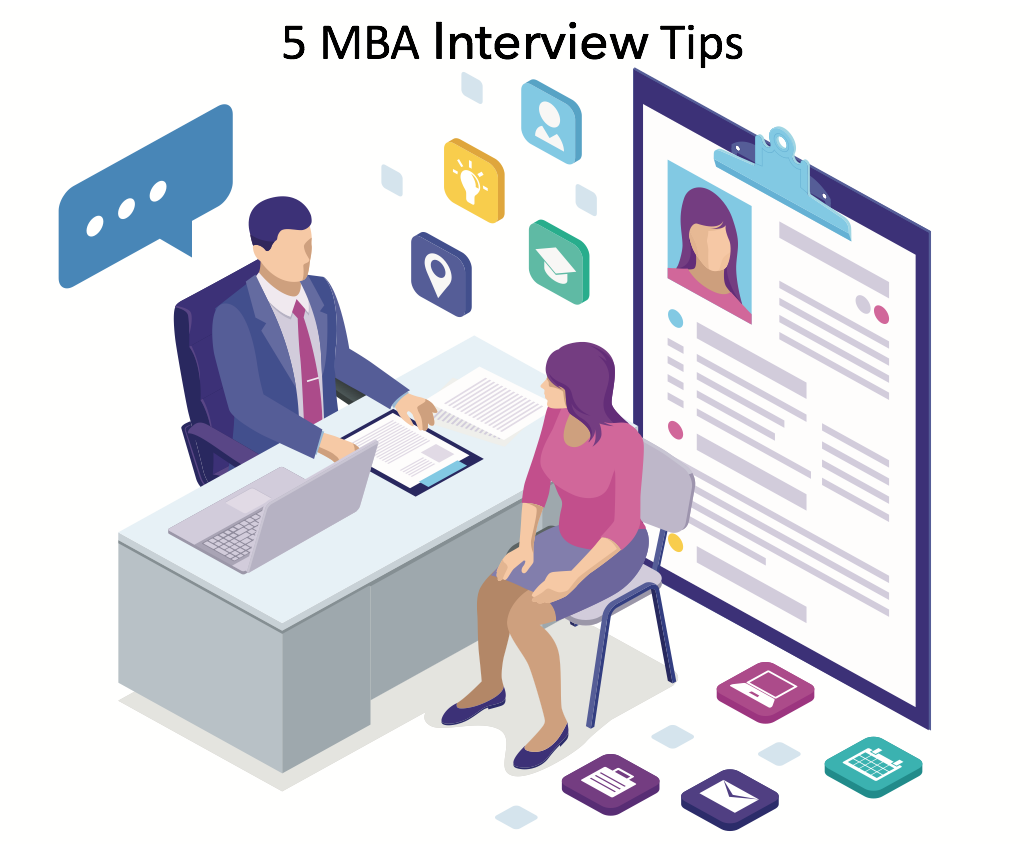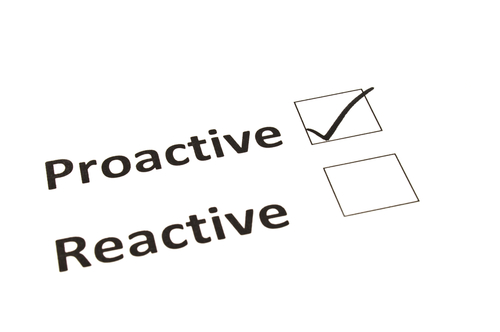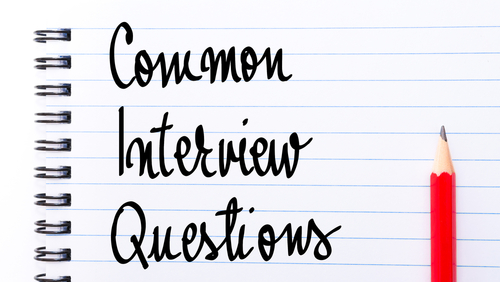The moment you hit the ‘submit’ button, you start anticipating the MBA interview invite from your target business school. You have done everything to impress the admissions committee: aced the GMAT, crafted an impeccable essay, received persuasive letters of recommendation. You have been working hard for the last few months to create a well-rounded profile. In short, you made sure that you leave no stone unturned while creating your application.

Now it’s time to reap the benefits of all the hard work you put in. They start the moment you receive that most awaited MBA interview invite. You’re just one step away from securing an admit and therefore, it is essential that you impress your interviewers. To make sure that you come out to be impressive in your interview, here are some MBA interview tips.
5 MBA interview tips to get you into your target business school
1. Be proactive and not reactive

Once you submit your application, you should start preparing for the MBA interview right away. There is no point in wasting time and waiting till you receive the MBA interview invite. If you do so, you’ll be procrastinating for no reason and business schools prefer go-getters. So, be proactive and not reactive.
2. Understand the interview process of your target business schools
Each business school has a certain approach to conducting an MBA interview. While some panels may have only one interviewer, others might have more. Also, the duration of the interviews can range from 30 minutes to an hour or more.

For example, an MBA interview at Harvard Business School (HBS) would have two interviewers and they will have access to your entire application. The interview is mostly centered around your resume to understand your vision for yourself and what experiences led you to decide on this vision. Moreover, you’ll also need to send a post-interview reflection within 24 hours to the HBS admissions committee. A typical HBS interview runs for 30 minutes.
HBS and MIT Sloan are the only M7 business schools in which the interviewer would have studied your entire application – Malvina Miller Complainville, Head of Interview Practice and Expert Coach at Fortuna Admissions, and was an Assistant Director at Harvard Business School.

On the other hand, Stanford GSB focuses on behavioral questions. They want to understand your past behavior to predict how you will perform in the MBA program. They will go deep into your personality. They’ll ask very specific examples of what you did and what thought process helped you make that decision. They’ll also ask about the impact your decision made. Moreover, the interview is an hour-long blind interview. A blind interview is the one in which the interviewer has only seen your resume.
Wharton and Michigan Ross conduct ‘Team-based MBA interviews.’ You’ll be put in a team and given a business problem which you have to work out together. While Wharton has a 10 minute debrief with each candidate after the activity, Michigan Ross’ team-based interview is added to the traditional MBA interview.
Kellogg, Yale, INSEAD, and LBS ask you to submit a video essay apart from taking a traditional MBA interview. The purpose of the video essay is to see how well you convey your information with little or no preparation time.
Therefore, it is important that you study what kind of MBA interview questions the admissions committee is going to ask you and prepare accordingly.
A 740+ GMAT score helps you get to the interview of your target business school. We can help you with that. Kickstart your GMAT preparation with more than 400+ free questions.
3. Research the most common MBA interview questions
Every MBA interview features a set of questions that are asked to almost everyone. These could be generic questions asked to everyone and could be specific questions asked to candidates who have a similar profile like yours. For starters, you can take a look at these seven most commonly asked MBA interview questions. The list has been compiled by GMAC. These MBA interview questions are:
- Tell us about yourself
- Why do want to do an MBA?
- Why do you choose this business school or program?
- Tell us about your leadership traits
- Tell us about your strengths and weaknesses
- What makes you a suitable candidate for this business school?
- Do you have any questions about the business school or the program?
One other source of good questions will be the transcripts of MBA interviews shared by the business schools. The transcripts are slightly modified but they will give you an idea of how an MBA interview flows and what are some good resume and non-resume MBA interview questions.

Sandy Kreisberg, founder of HBSGuru.com in an interview to Poets & Quants discussed three HBS MBA interview transcripts.
Here are some MBA interview questions from these transcripts.
- What companies outside of your industry do you follow?
- The observer has only read your resume, introduce yourself?
- In your essay, you talked about your passion for your industry, how did that develop?
- What keeps your CEO up at night?
- How do you work with limited information?
- Give me an example.
- Do you like the quantitative or qualitative parts of your job better?
- What happened to the project on your resume? Was it successful?
- How do you get your news?
- Name someone we both know that you admire?
- Name someone in your industry that you admire?
- What strengths and experiences do you need to become that person.
- How will you be different after 2 years at HBS?
- What challenges do you foresee at HBS? What is going to be hard for you at HBS (besides time management)?
- How will your classmates remember you?
For a detailed version of these questions, you can refer to the article on Poets & Quants.
Once you are aware of the kind of questions you can expect, the next step would be to prepare answers to these questions.
4. Prepare answers for MBA interview questions
The best way to prepare answers for the MBA interview questions is to refer to the resume and essay you have already submitted. The key is identifying your key selling points and anecdotes to support them. While preparing answers for MBA interview questions, keep in mind the business school’s core beliefs. It’s important that you relate your key strengths with their core beliefs to explain your program fit.

However, during this process don’t forget to prepare meaningful questions for your interviewers. The questions should be thoughtful and should demonstrate your genuine interest in the business school.
If you have alumni in your interview panel, it’s a great opportunity to ask about their post-MBA experiences and how that business school shaped their careers. You can also ask admission officers specific questions on-campus culture and how their business school community nurture growth.
The actual interview may not go the way you anticipated and therefore, be prepared for the tough questions. The best way to answer tough questions (most likely they will be on your weaknesses or failures) is, to be honest, and how those experiences made you better. This will put you in a positive light and highlight your ability to introspect and focus on personal growth.
5. Practice the MBA interview questions
We can’t emphasize enough on the importance of practicing the MBA interview questions. Now that you have a list of MBA interview questions and answers, you should dedicate time to practice your delivery. The answers should be authentic so that when you speak in front of the interviewers you don’t sound overly rehearsed.

The best way is to ask someone to perform a mock MBA interview with you. Make sure you record the interview to evaluate your facial expressions while conversing. The purpose is not only to check how well you are speaking but also to check if you are going off-topic. Keeping to the point is appreciated by the interviewers as it shows your resourcefulness. Using fewer words to convey the information effectively is a valuable skill.
After your mock MBA interview, analyze the recording, and refine your answers and expressions. Take the help of an admissions consulting firm in this process if you feel the need.
We hope these MBA interview tips are helpful in securing an admit from your target business school. If you are expecting an MBA interview call, then make sure you start researching and preparing a few MBA interview questions and answers. Be authentic and convey your truest self in these answers. Speaking the truth is the most empowering action and it will convey your passion towards your career goals. It will also help in calming your nerves during the interview. We wish you the best for your MBA interview.
FAQs – MBA interview and questions
MBA admissions officers conduct interviews to assess how well you match up to your description in your essays and to assess whether you’ll be a good fit for their MBA program. In short, they want to assess whether you can not only ‘get in’ but ‘get through’ their MBA program.
Business formals or casuals should work. If the school specifies “business casual,” men should dress in a sports coat or sweater and collared shirt with no tie. For women, it’s a conservative dress, skirt or pants with a blouse or sweater.
Absolutely yes. In fact, you should be certain that you will be asked a lot of questions around your essay.














